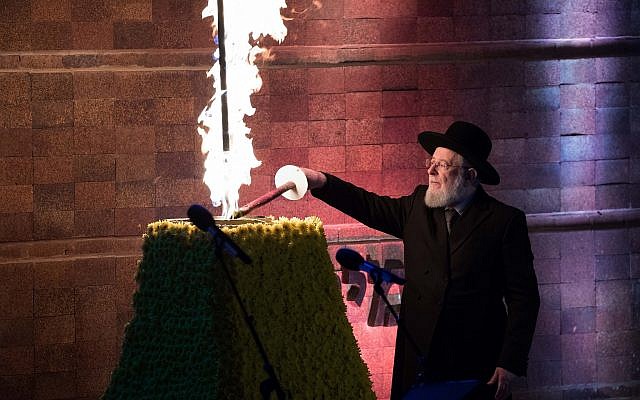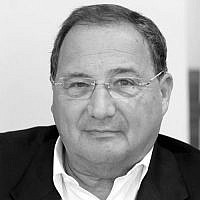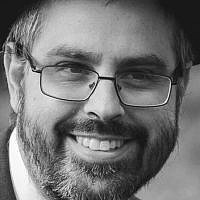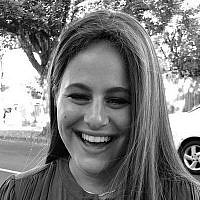Never again — probably

Most Holocaust survivors know that “never again” is a devoutly held wish, but not a historic inevitability. Most of us live with the fear that it can happen again, if not here in the United States than somewhere in the world.
I was shocked to read this quote in this week’s New York Times — “Today, 70 years later, you have the feeling for the first time that history could repeat itself. That it’s not out of the question.” I was even more shocked to see that the speaker was not a Holocaust survivor.
I despair for Jewish life, Jewish community, and the Jewish future in Europe. Populism, anti-immigrant sentiment, and anti-Semitism are threatening, and combined with the extreme-left-wing-supported radical Islam that now is sweeping that continent, it seems that no country there is immune from those extremely bigoted forces. Germany, France, the United Kingdom, Sweden, Poland, Hungary, Iceland, Denmark, Russia, Greece, and even Italy seem to be at risk.
I also am worried about anti-Semitism in America. Right now, it seems to be a serious but not a critical threat; Jews are far safer here in the United States than in Europe. America is not immune from anti-Semitism, but it is not virulent, much less life-threatening, here. The American Jewish community continues to flourish, publicly and proudly.
But there is a change in the environment, as a result of the election and presidency of Donald Trump.
Trumpism has destroyed the social contract that protected Jews and other minority communities. The communal norms that Trump disparages as political correctness were not a panacea, but they provided security. Trump’s campaign destroyed the taboos about name-calling and stereotyping minority communities, demolished the idea of common decency, of not insulting disabled people and Muslims and Mexicans and anyone else he derided as not making up his base. Until now, minority communities have been protected against this kind of bigotry not as much by laws as by social norms. You can be a bigot in America, and the Constitution will protect your right to be a bigot. But until now, if you were a bigot publicly, there would be consequences, and you’d have to pay them.
That no longer seems to be the case.
The 200 neo-Nazis who marched in Charlottesville shouting “Jews will not replace us” are not a new phenomenon. They always have been there, and Jewish organizations, from the ADL to the local JCRCs, always have known who and what they are. But Trumpism has emboldened them. It has allowed them to emerge from the sewers. They now have the legitimacy and the chutzpah to face the cameras and shout anti-Semitic slogans. And what made it worse is that the president of the United States defended some of them as good Nazis. There were very fine people on both sides in Charlottesville, he said.
Mr. President, there are not and never have been any good Nazis. None of them were very fine people. You have to say that publicly to the American people. Too many thousands of American soldiers were killed by the Nazis for you to let this stand.
The farther we move from the Shoah, the more not only will the memories fade as the survivors age and die, the more distortions will abound.
I once asked my father, z’l, why, during the Shoah, when a bowl of soup or a piece of bread could be the difference between life and death, Jews bartered the soup for ink, the bread for paper. He told me that they feared that the world would not know that they had lived, or how they had died.
Today, we have to fight not only Holocaust denial and Holocaust distortion, but also Holocaust trivialization. Elie Wiesel once that that he worried more about trivializing the Holocaust than denying it. Denial, he said, is so stark, and trivialization is so subtle.
But still, 70 years later, there are many books written and movies produced about the Holocaust; good people still are struggling to understand this grotesque evil.
As a survivor, I am experiencing many conflicting emotions, and so are many other Jews today. One the one hand, we have survived to witness the rebirth of Israel as a sovereign Jewish state – Jewish independence, Jewish renewal. And we have Yerushalayim, the eternal Jewish capital.
On the other hand, this great sense of Jewish pride is accompanied by serious anxiety about the future of the Jewish diaspora. Yes, there is assimilation, but we also are witnessing Jewish creativity, energy, ingenuity, and spiritual and physical growth. But I worry that anxiety, even fear about our safety in the public sphere if we are public as identifiable Jews, may result in Jews deciding not to send their kids to Jewish schools, not for philosophical reasons but for fear; or not to go to synagogue, not out of lack of faith but for fear. Almost all Jewish institutions in Europe are armed fortresses, and I worry that our American Jewish institutions will go in that direction too.
American Jewish college students often don’t display their Jewishness in public, not because they don’t want to identify as Jews but because they feel intimidated by the reaction they fear they’d encounter. They don’t identify publicly because they fear it would be too uncomfortable, perhaps even too frightening. That is sad and costly.
Despite all this, and especially now, at this time of Shoah memory, I remain optimistic about Jewish life. We have survived while so many other civilizations have disappeared. All the others – the Greeks, the Romans, the Incas – encountered tragedy, and they all said “No more! I don’t want to be identified with this any more.”
But not us.
After every tragedy, including the most horrific savagery and genocide of the Holocaust, we got up, brushed ourselves off, and decided that we wanted to continue being Jewish. We went from the Shoah to the Jewish state. We continued to affirm our Jewishness. Israel continues to be our shield, our refuge, and our strength. And while I will never say that it can never happen again, still I am an optimist.
I am hopeful about the Jewish future.



